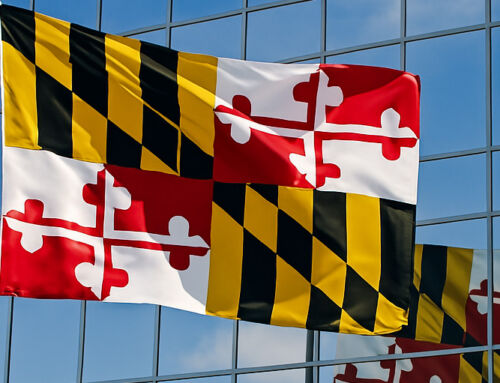View by Topic
Recent Articles
-
Migratory Bird Treaty Act Does Not Prohibit Incidental Take – AgainSaturday, April 19th, 2025
-
President Trump’s Bold Step to Rein in State Overreach in Climate ChangeSaturday, April 12th, 2025
-
Mandatory GHG Disclosures in Maryland Real Estate ContractsSaturday, April 5th, 2025
-
NYC Building Electrification Ruling is Interesting But Not a Game ChangerSaturday, March 29th, 2025
-
Greenpeace Ordered to Pay $667M in Blow to ActivismSaturday, March 22nd, 2025
View by Month/Year
“Green Building Law Update” Headlines
Recent Articles & News from
Stuart Kaplow’s blog
at GreenBuildingLawUpdate.com
- Migratory Bird Treaty Act Does Not Prohibit Incidental Take – Again April 20, 2025
- President Trump’s Bold Step to Rein in State Overreach in Climate Change April 13, 2025
- Mandatory GHG Disclosures in Maryland Real Estate Contracts April 6, 2025
- NYC Building Electrification Ruling is Interesting But Not a Game Changer March 30, 2025
Subscribe to the Green Building Law Update!
Stuart Kaplow brings his expertise and extensive experience to the table with his unique digital publication, "Green Building Law Update". Subscribers receive regular updates to keep them informed about important issues surrounding Environmental Law, Green Building & Real Estate Law, as well as the emerging demand for Environmental Social Governance (ESG).
Get fresh content through the lense of Stuart Kaplow's cutting-edge expertise, innovative commentary and insider perspective. Don't miss another issue! Subscribe below.

ESG is Not Just for Public Companies
The impact of ESG is not limited to public companies.
There are just over 4,000 public companies traded on an exchanges in the U.S., but according to the Census Bureau there are more than 7 million privately held businesses (with employees) across the country. And it is many of those millions of private businesses that will get richer from ESG.
At its simplest, many of those private companies are in the supply chain of larger companies that will demand their suppliers and other stakeholders comply with ESG mandates, such that the upstream business can demonstrate a positive ESG record (e.g., commercial landlords are launching ESG initiatives to compete for tenants that have ESG requirements).
A bit more uncomplicated, is that private companies are usually more nimble reacting more quickly, producing a more efficacious program and do so more economically, than businesses with layers of c suite executives that report to a board of directors; maximizing opportunities with market conditions created by emergent ESG standards.
Smaller businesses, without a deep bench of internal ESG expertise need to be particularly cautious of greenwashing in ESG claims. Many find engaging an attorney with sustainability expertise is a good way to mitigate ESG associated risk.
And with brand reputation as the number one reason businesses currently engage in ESG efforts, as 78% of respondents indicated in a recent survey, that overwhelming response applies equally to public and private businesses. This market driver is, of course, before any real ESG regulation in the U.S.
And regulation is already here that impacts some small businesses. A Maryland law that became effective on May 30, 2021, requires specified businesses in the State demonstrate diversity in their board or executive leadership and additionally and most significantly, that new law requires each business entity, when it annually renews its charter, to submit diversity data. The Maryland government advises that approximately 430,000 businesses are in good standing within the state, including small, privately owned businesses that do not have corporate boards or leadership structures, so while an accurate determination is not possible, many of those entities will be subject to annual state reporting under this new ESG law.
Moreover, government mandates and incentives that have already driven business investment into renewable energy will go wider and deeper with ESG mandates that promise to do more than only Environmental, but also the social engineering that is the Social and Governance. Businesses small and large will take advantage of this artificial demand created by government.
That the Supreme Court just agreed to review the EPA’s authority to regulate greenhouse gas emissions may give the federal government the authority to regulate environmental protection through policies aimed at the electric power generating monopolies, impacting every business that needs electricity, small and large alike. The electric utility monopolies are an industry that doth protest too much, methinks, made wealthy by government regulation, whatever the pendulum swing of that regulation.
And there will be other opportunistic industries. Already the U.S. banking industry is signaling its willingness to consider ESG when underwriting lending. Private lenders banded together at the recent COP26 U.N. climate summit to pledge more than $139 Trillion in private capital (.. that is more than 125% of the planet’s gross domestic product in 2021) they will lend to main street businesses, at a profit, to fund business’ implementation of government climate change policy.
In 1961 President Eisenhower warned the nation about the military industrial complex. But in 2021, some are quietly cautioning about an emergent coterie of environmentalists, government and businesses that are emboldening an “ESG industrial complex.”
There will be winners and losers. Those businesses that do not respond face being a contemporary buggy whip maker. ESG will no doubt make many on Main Street richer. Fortune favors the bold and those businesses that innovate, now, in advance of the all but certain coming government intervention in ESG, will be those enterprises that thrive.









